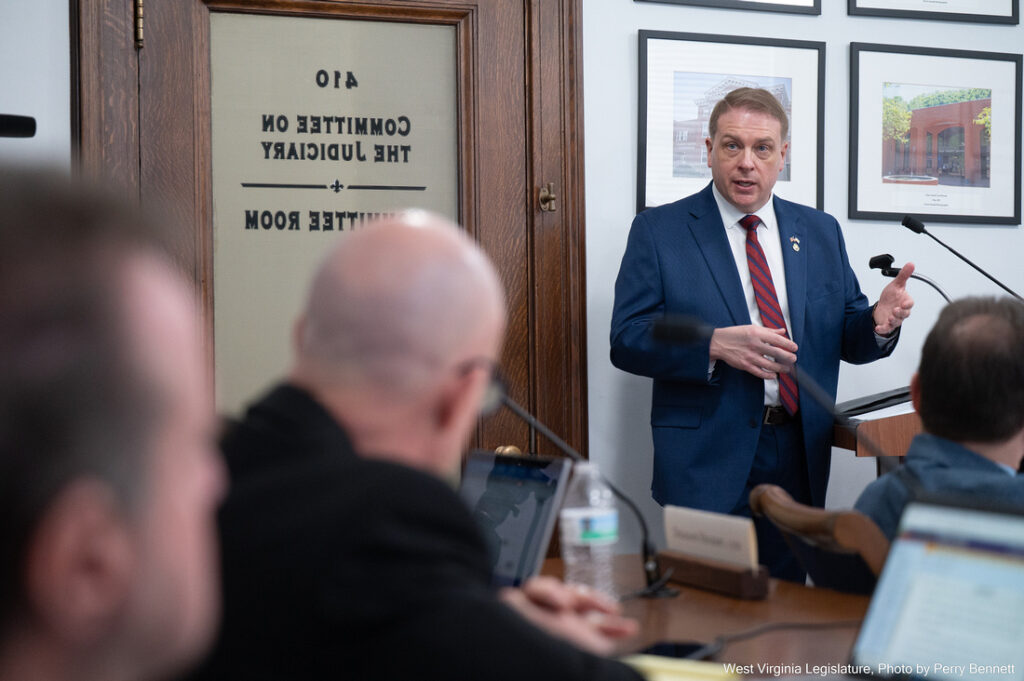Shepherdstown Commemorates 250th Anniversary Of Beeline March
Residents and reenactors gathered in Shepherdstown on Saturday to celebrate the anniversary of a Revolutionary War event with West Virginia roots.
Continue Reading Take Me to More News
West Virginians convicted of selling illicit drugs may soon face stiffer criminal penalties. But some lawmakers and residents worry harsher sentences may not effectively deter drug use, and could have farther reaching implications than intended.
Senate Bill 196 is dubbed “Lauren’s Law.” It is named after Morgantown resident Lauren Cole, who died at age 26 after ingesting drugs laced with fentanyl. The bill would hike prison sentences for the manufacturing, delivery or possession with intent to deliver certain addictive substances, namely fentanyl, methamphetamine, PCP, LSD, cocaine and heroin.
At their meeting Monday, members of the House Judiciary Committee agreed that more needs to be done to prevent drug overdose tragedies. But their ideas for potential solutions differed.
Proponents of the bill say it offers a much-needed intervention into the state’s addiction crisis. Opponents worry that it could dampen judicial discretion and have farther reaching impacts than initially intended.
The bill’s lead sponsor Sen. Vince Deeds, R-Greenbrier, testified before the House committee Monday. He argued the prospective criminal penalties were comparable to those in neighboring states, and said addressing addiction means targeting those who enable access to illicit substances.
“West Virginia has been victimized by the drug dealers from outside the state bringing this into our state,” Deeds said. “Ultimately, I consider everyone that is drug dependent as being a victim.”
Deeds said giving courts the authority to enforce harsher penalties could be a piece of the puzzle in a wider effort to address substance use. He also said addiction comes at the cost of the state’s medical system and workforce.
But lawmakers on both sides of the aisle questioned the efficacy of criminal penalties as a deterrent against the sale and use of illegal substances.
So did Kenneth Matthews, an associate for the American Friends Service Committee, who testified before the committee Monday. He said it’s more effective to examine substance use disorder from a health lens.
“We saw in West Virginia a 37.4% decrease in overdose deaths from the same time last year. How did that happen? Well, we had a bunch of substance use treatment facilities get into operation,” he said. “There was less stigma around substance use.”
Some lawmakers expressed concern that the stiffer penalties could take away judges’ ability to assess drug-related offenses on a case by case basis and help people experiencing addiction access support.
Del. Evan Hansen, D-Monongalia, questioned whether bigger penalties would mean bigger costs for correctional facilities. He also worried the bill could heighten penalties for less restricted drugs, like marijuana, if they had trace amounts of other substances.
He asked whether a weight metric used on possession charges could have unintended consequences for someone with marijuana who is unaware the drug is laced with something else.
“If somebody’s caught with a small bag of marijuana that has just the detectable amounts of some other drug with higher penalty, that entire weight of marijuana is considered to be the weight of that other drug,” Hansen said.
Despite these concerns, committee members chose to move forward with the bill. The House Judiciary Committee advanced Senate Bill 196 to the markup and discussion phase, but multiple lawmakers expressed interest in amending the bill’s language.